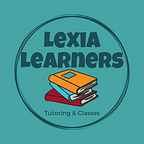In Case You Didn’t Know: Comic Books Do a Great Job Helping Struggling Readers
When people talk about reading, comic books which are known for their attractive images and colorful designs, are often the last mentioned. Well, it’s not much of a surprise anymore. Why? For a long time now, many of us still do not take comic books seriously, taking the fantastic benefits they have for granted.
What can you get from reading comic books aside from entertainment?
According to Stanovich (1986), the more one reads, the better one gets at reading, and the less one reads, the more delayed one’s literacy skills become. The problem is that encouraging students to read can be challenging. Some children struggle with or hate required readings at school. They tend to hate reading even more when they have to read out loud or have a deadline for class. This is definitely a red flag for parents, and something must be done so the child’s literacy skills will not be impeded.
Don’t know where to start? This is where comic books can be of great help. Since comic books feature various interesting stories, they can easily stimulate excitement among children, not to mention that they are also visually appealing. In other words, children will be enticed to give reading another try. If they find reading “boring” because of how textbooks or other academic books are written, their perception of reading might change once they are introduced to comic books. Moreover, they can read comic books anytime they want, mostly after school hours or before bedtime, without any pressure to finish everything as soon as possible.
Comic books involve a lot of grammar, text features, and narrative elements. Students, especially long-time readers, can actually review for a summative test using comic books. Moreover, students can relate easier to topics or lessons when presented in a comic book format. The more they can quickly establish the connection between what they are reading and how it applies in real life, the more they can understand and retain the information.
A 2016 study was conducted by some professors at the National Institute of Education in Singapore to see how beneficial comic books are for teaching math. Results showed that students could relate better to familiar scenarios found in the comic strips, such as calculating discounts and comparing local food prices at stores. This supports the idea that combining visual graphics and textual information in comic books helps children better process the topic at hand.
Can dyslexic students also benefit from comic books?
The answer is YES. Interestingly enough, many dyslexic people, including those successful dyslexic personalities, started with comic books. Jay Stringer, a well-known dyslexic author, describes the experience of reading a comic book as, “A comic book trains your brain. It works the right muscles and, if you’re struggling, it can teach you to read. You see images for context, you see the words that go with them, and your mind learns to fill in the blanks. You learn to build the narrative as you go. As a child, I suddenly got it. I had a structure, a guide for processing the information I was taking in, and where to store it. I had a reason to keep moving through the pages.”
In a Stanford Magazine interview, Charles Schwab, the stock market tycoon and founder of the multinational financial services company The Charles Schwab Corporation, shared that he struggled with reading because of his dyslexia back in his younger years. Schwab recalled how reading the Classic Comic Books immensely helped him make his way through his reading assignments.
Other studies also presented significant results where comics readers showed improved recall for material and applied problem-solving after reading words with graphics (Mayer et al., McKenny et al.). In addition, Change Dyslexia founder Luz Rello explained that many comic books use larger fonts than novels and textbooks, which can benefit those with dyslexia.
So, if you’re still doubting whether reading comic books really counts as “reading,” this is your sign to ignore your doubt and just GIVE IT A TRY.
Comic books bring many benefits — they transform children from reluctant readers to confident readers AND they inspire children to embrace their uniqueness through the storylines that highlight diversity or characters with learning differences.
References:
5 Reasons to Start Reading Comic Books (n.d.). https://www.scribendi.com/academy/articles/reasons_to_start_reading_comic_books.en.html
Comics and Dyslexia: A Curious Connection (n.d.). https://www.dyslexicadvantage.org/comics-and-dyslexia-a-curious-connection/
Dehart, J. (2019). Using comic books for serious learning. Edutopia. https://www.edutopia.org/article/using-comic-books-serious-learning
Dwyer, L. (2013). We should probably turn textbooks into comic books. Good. https://www.good.is/articles/page-turners-study-suggests-we-turn-textbooks-into-comic-books
Johnston, T. (1999). Charles Schwab’s secret struggle. Stanford Magazine. https://stanfordmag.org/contents/charles-schwab-s-secret-struggle
